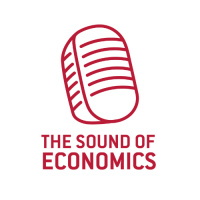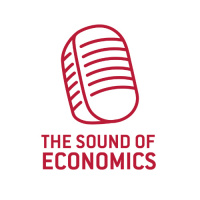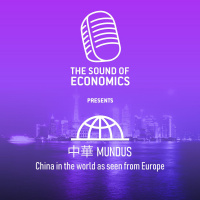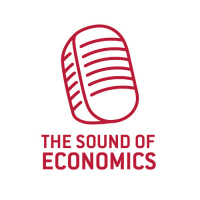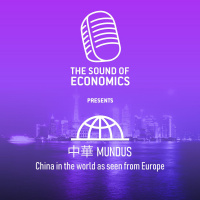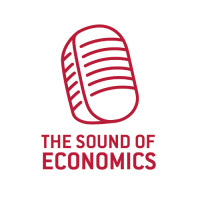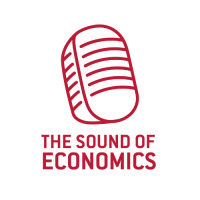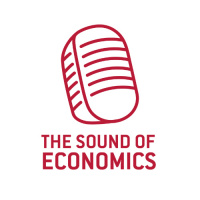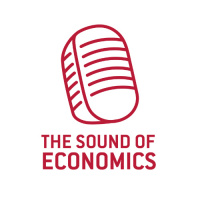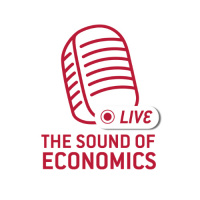Synopsis
Bruegel is the European think tank working in the field of international economics. Established in 2005, Bruegel is independent and non-doctrinal. It seeks to contribute to European and global economic policy-making through open, fact-based and policy-relevant research, analysis and debate.
Episodes
-
Revisiting Europe’s energy independence
14/07/2022 Duration: 47minWith the winter on the horizon, it is more important than ever for Europe to be independent in energy. Russian gas cuts, sanctions and embargoes have put the EU in a tough spot, where a trade-off had to be made between energy needs and actions against Russia. In this episode of the Sound of Economics, Bruegel’s interim Director Maria Demertzis is joined by Bruegel's Ben McWilliams, Simone Tagliapietra and Georg Zachmann to discuss the future of European energy independence, what needs to be done and its implications for sustainable goals.
-
How has the pandemic affected the BRI?
06/07/2022 Duration: 36minSince its announcement in 2013, BRI has only grown in economic and political relevance. However, with the COVID-19 pandemic and the ensuing lockdowns, the mega project is at a standstill. Is the scope and ambition of BRI permanently shaped? In this episode of The Sound of Economics, Giuseppe Porcaro is joined by Alicia García-Herrero and Xue Gong, to discuss the context, present, and future of BRI in relation to the pandemic and foreign relations. This episode is part of the ZhōngHuá Mundus series of The Sound of Economics. ZhōngHuá Mundus is a newsletter by Bruegel, bringing you monthly analysis of China in the world, as seen from Europe. Sign up now to receive it in your mailbox!
-
A decade of economic policy
30/06/2022 Duration: 33minAs his time as Bruegel Director comes to an end, Guntram Wolff sits down with Giuseppe Porcaro to discuss the highs, lows and shifts of economic policy in Europe over the past decade and Bruegel's contribution in an effort to improve it, from the euro area sovereign debt crisis, migration to Brexit, geoeconomics, the climate urgency and COVID-19. Relevant publications and events: Policy contribution, What kind of European banking union? Blueprint, EU-IMF assistance to euro area countries: an early assessment Event, Resolving the European debt crisis External publication, Europe after Brexit: A proposal for a continental partnership Policy contribution, Redefining Europe’s economic sovereignty Policy brief, The threats to the European Union’s economic sovereignty Policy contribution, The geopolitics of the European Green Deal Policy contribution, An effective economic response to the Coronavirus in Europe External publication, A Global Deal for Our Pandemic Age
-
Understanding Sri Lanka's current crisis
23/06/2022 Duration: 35minSri Lanka is experiencing an episode of political and economic instability the country has not seen since the civil war. The growing anti-government sentiment, the power struggle between the Parliament and the President Gotabaya Rajapaksa, mixed with the economic situation has reached a boiling point, and an outbreak of riots and protests in the streets. In this episode of The Sound of Economics, Giuseppe Porcaro is joined by Bruegel Senior fellow Alicia García-Herrero, and Asanga Abeyagoonasekera, international security and geopolitics analyst and strategic advisor from Sri Lanka, to discuss the crisis in Sri Lanka, its relation to China's BRI, and to understand its consequences for Europe, China, as well as the world. This episode is part of the ZhōngHuá Mundus series of The Sound of Economics. ZhōngHuá Mundus is a newsletter by Bruegel, bringing you monthly analysis of China in the world, as seen from Europe. Sign up now to receive it in your mailbox!
-
Growth for good?
15/06/2022 Duration: 30minGuntram Wolff invites Bruegel veteran Alessio Terzi to talk about his recently published book ‘Growth for good’, which lays out an agenda to enroll capitalism in the fight against climate catastrophe. With Diane Coyle, they take a deep dive into the book and share their view on the growth or degrowth debate.
-
War in Ukraine: Ukraine's place in the EU
14/06/2022 Duration: 59minIn this episode of the Sound of Economics Live, Bruegel Director Guntram Wolff hosts Ľubica Karvašová (Prime Minister’s office Slovakia), Alexander Duleba (Research Centre of the Slovak Foreign Policy Association), and André Sapir to debate a proposal by the Slovak government to aid Ukraine’s accession to the EU. Check our special podcast series, War in Ukraine, which reflect on the implications of Russia’s war in Ukraine in EU energy storage, macroeconomic implications, international finance system and more.
-
Is China bailing Russia out?
08/06/2022 Duration: 32minAlexander Gabuev joins Bruegel’s Giuseppe Porcaro and Alicia García-Herrero to discuss China’s ambiguous stance towards Russia’s invasion of Ukraine, how this impact China’s relationship with other countries and if Russia is becoming more dependent on China. This episode is part of the ZhōngHuá Mundus series of The Sound of Economics. ZhōngHuá Mundus is a newsletter by Bruegel, bringing you monthly analysis of China in the world, as seen from Europe. Sign up now to receive it in your mailbox!
-
An embargo on (most) Russian oil
31/05/2022 Duration: 39minEuropean leaders have finally agreed on a Russian oil embargo. What are the implications? How long will it take to enforce and what should be the next steps? Bruegel’s Giuseppe Porcaro is joined by MEP Luis Garicano, Simone Tagliapietra and Georg Zachmann to talk sanctioning Russia.
-
Taming inflation?
25/05/2022 Duration: 43minThe latest economic forecasts published by the European Commission as well as IMF show low growth and high inflation. Maria Demertzis is joined by Grégory Claeys and Megan Greene to discuss the economic outlook on both sides of the Atlantic. They discuss the possibility of stagflation, inflation duration and its implications, interest rates increasing and the risks that it entails, as well as other ways of containing inflation.
-
Job quality is about more than working conditions
19/05/2022 Duration: 33minPeople spend a significant portion of their lives at work; job thus has a huge impact on a person’s well-being. This week on The Sound of Economics, Giuseppe Porcaro is joined by Laura Nurski and Janine Berg to discuss how to enhance job quality, how technology will impact its dimensions and how to involve workers in the design of technology. This podcast was produced within the project “Future of Work and Inclusive Growth in Europe“, with the financial support of the Mastercard Center for Inclusive Growth. On 7 June we hold the Annual Conference of the Future of Work and Inclusive Growth project. Half-way through this three-year project, we invite you to join us in discussing how inclusive the digital future of work will be, as we focus on job quality, digital skills and productivity. Relevant publication: Nurski, L. and M. Hoffmann (2022) ‘Beating burnout: identifying bad jobs and improving job quality’, Policy Contribution 07/2022, Bruegel
-
The cost of China's dynamic zero-COVID policy
11/05/2022 Duration: 36minThe Chinese government is determined to continue its Zero-COVID policies, but at what cost? Dialling in from Beijing, Jörg Wuttke, President of the EU Chamber of Commerce in China, joins Bruegel’s Alicia García-Herrero and Giuseppe Porcaro to discuss the impact of lockdowns on the country’s economy and its growth targets, as well as European companies’ re-evaluation of their China strategy. This episode is part of the ZhōngHuá Mundus series of The Sound of Economics. ZhōngHuá Mundus is a newsletter by Bruegel, bringing you monthly analysis of China in the world, as seen from Europe. Sign up now to receive it in your mailbox!
-
Global trade Down Under
04/05/2022 Duration: 45minBruegel’s Giuseppe Porcaro and André Sapir sit down with Tim Yeend, Associate Secretary of the Department of Foreign Affairs and Trade, Australia. They discuss current global trade environment, Australia’s perspective on the WTO, supply chains, economic coercion as well as EU-Australia bilateral trade relationship.
-
War in Ukraine: What is the effect on Central and Eastern Europe?
26/04/2022 Duration: 57minIn this episode of the Sound of Economics Live, Bruegel Director Guntram Wolff hosted Beata Javorcik, Chief Economist of the EBRD, to discuss how the ongoing war in Ukraine is affecting Central and Eastern Europe. Drawing on the EBRD’s recent activity in Ukraine and it’s neighbourhood, Ms Javorcik reflected on the impact of the conflict not just on Ukraine, but also on the EU countries geographically closest to the conflict. Check our special podcast series, War in Ukraine, which reflect on the implications of Russia's war in Ukraine in EU energy storage, macroeconomic implications, international finance system and more.
-
War in Ukraine: sanctions on Russia two months in
22/04/2022 Duration: 38minAs Russia’s war on Ukraine continues, Giuseppe Porcaro is joined by Nicolas Véron and Elina Ribakova to take look at the list of sanctions imposed on Russia so far and the implications on the global financial system and central banks. Check our special podcast series, War in Ukraine, which reflect on the implications of Russia's war in Ukraine in EU energy storage, macroeconomic implications, international finance system and more.
-
Making remote work, work
13/04/2022 Duration: 33minFor people who want to go back to the old way of work, the train has left the station. COVID-19 has given a huge impetus to working from home for those jobs that can, where more individuals are able to choose when and where they are most productive, and companies can choose what they want remote work to look like. Giuseppe Porcaro is joined by J.Scott Marcus and Lisette Sutherland to explore remote work on both sides of the Atlantic. Together they discuss work-life balance, gender gaps, skill acquisition, modernisation of workflows, technology adoption, managerial culture and flexibility enhancement. Relevant publication: COVID-19 and the accelerated shift to technology-enabled Work from Home (WFH), J. Scott Marcus, Georgios Petropoulos and Antonio Aloisi This podcast was produced within the project “Transatlantic expert group on the future of work “, with the financial support of the European Union. Its contents are the sole responsibility of Bruegel AISBL and The German Marshall Fund of the United
-
War in Ukraine: The EU’s ban on Russian coal
06/04/2022 Duration: 34minOn 5 April 2022, the EU announced that it will ban coal imports from Russia. The move — aimed squarely at energy imports for the first time — comes as a direct response to reports that Russian forces committed war crimes in Ukraine. In this live podcast, Giuseppe Porcaro discusses with Simone Tagliapietra unpack how the coal ban will presumably be implemented, and what it means in terms of direct and indirect consequences.
-
What to expect from China's innovation drive?
06/04/2022 Duration: 40minChina is investing heavily in science and technology: from 2011 to 2021, internal R&D spending jumped from 869 billion to 2.79 trillion Yuan. What has been the effect of this increase, and is it commensurate with the amount of spending? Giuseppe Porcaro sits down with Alicia Garcia-Herrero, Reinhilde Veuglers and Naubahar Sharif, to discuss the innovation system in China, the strengths and weaknesses of its state-led R&D strategy, and what lies ahead for the international situation where geopolitics seems to overshadow cooperation. This episode is part of the ZhōngHuá Mundus series of The Sound of Economics. ZhōngHuá Mundus is a newsletter by Bruegel, bringing you monthly analysis of China in the world, as seen from Europe. Sign up now to receive it in your mailbox!
-
War in Ukraine: How to make Europe independent from Russian fossil fuels?
31/03/2022 Duration: 44minThe EU has proposed a plan to make Europe independent from Russian fossil fuels before 2030, as well as responding to rising energy prices. In this episode of the Sound of Economics Live Bruegel's own Guntram Wolff and Georg Zachmann welcome Diedrik Samsom to present REPowerEU and to discuss how feasible it is.
-
Online labour: Can we all just move to Tahiti?
23/03/2022 Duration: 35minThe internet is changing the way we work. In this episode, Giuseppe Porcaro is joined by Laura Nurski and Fabian Stephany to discuss the utilisation of online work across countries and occupations, what it means for the society, and how policymakers should better regulate it. This podcast was produced within the project “Future of Work and Inclusive Growth in Europe“, with the financial support of the Mastercard Center for Inclusive Growth.
-
War in Ukraine: reflections on the economic consequences for Russia
10/03/2022 Duration: 55minIn this episode of the Sound of Economics Live Maria Demertzis and Guntram Wolff host Russian economist Sergei Guriev, to discuss how the war in Ukraine will affect the Russian economy.

